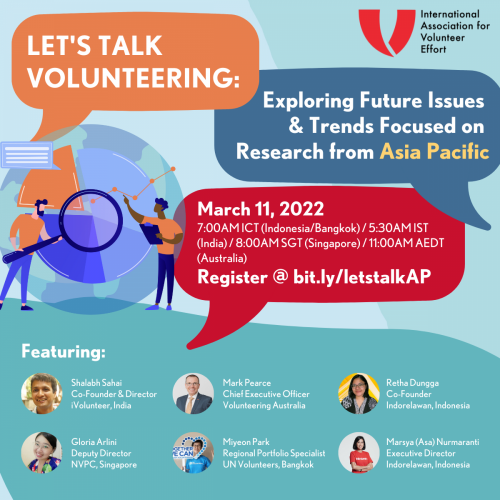
To register: https://www.iave.org/events/
The Future of Giving 2021 published by the National Volunteer & Philanthropy Centre (NVPC) Singapore (Jan. 2022). To Prepare for future challenges in the giving landscape and create a future that we want to live in, we need to understand where the seeds of that future are in the present. How will the giving landscape look like in the next 10 years? What causes will people focus on in the future, who are the untapped pool of givers, how will people give, and what are the key trends that will shift and shape the way people give and receive? https://cityofgood.sg/resources/the-futures-of-giving-2021/
The COVID-19 Impact Research Program, a series of research papers published by Volunteering Australia and this webinar will focus on Continuity and change: volunteering during the COVID-19 pandemic (Dec 2021) This research raises important questions about how we might better support volunteers as the pandemic continues and how we might prepare for the future. https://www.volunteeringaustralia.org/continuity-and-change-volunteering...
Volunteer contributions in Thailand to the SDGs during COVID-19 (June 2021). United Nations Volunteer Program Bangkok Regional Office and the NGO Indorelawan conducted a survey of volunteer contributions in Indonesia to inform a submission to the Government of Indonesia’s Voluntary National Review 2021. These reviews report on a country’s progress to meeting the Sustainable Development Goals (SDGs).










Add new comment